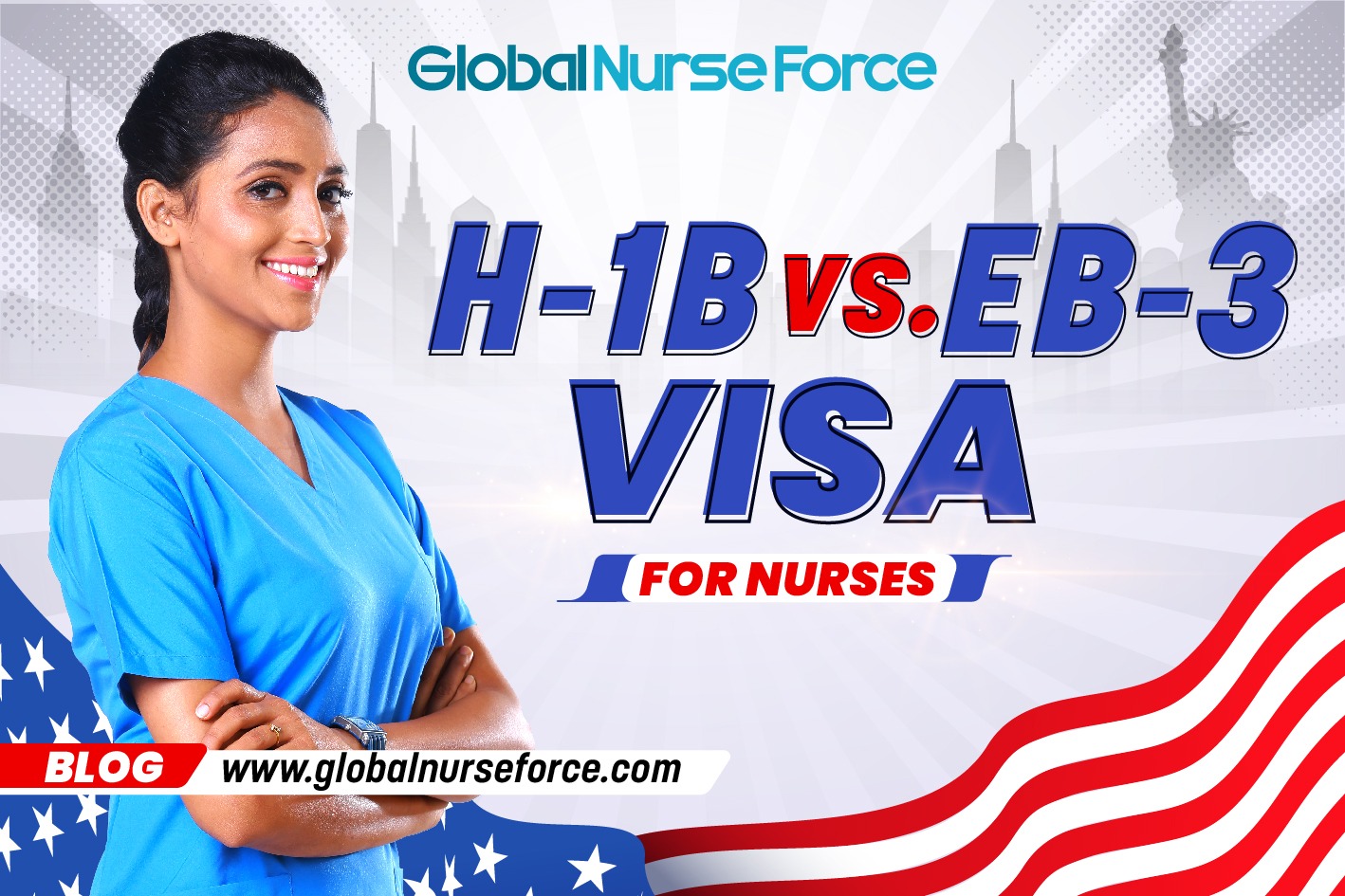H-1B vs. EB-3 Visa: A Comprehensive Guide for Nurses Migrating to the U.S.
Are you a registered nurse exploring opportunities to migrate to the United States for work? Understanding the visa options available is crucial for a smooth transition. In this comprehensive guide, we’ll compare two popular choices for nurses: the H-1B visa and EB-3 visa.
Discover the unique requirements, benefits, and limitations of each visa category to make an informed decision about your journey to the United States as an RN. Discover the unique requirements, benefits, and limitations of each visa category to make an informed decision about your journey to the United States as an RN.
H-1B Visa for Nurses
The H-1B visa allows qualified professionals to temporarily work in specialty occupations in the U.S. A specialty occupation requires a Bachelors’ Degree or higher.
Foreign nurses under H-1B status are allowed to work in the US for an initial period of 3 years with the possibility of extensions for additional 3-year periods. They are also allowed to apply for their green cards while they are on H-1B status.
Here’s what you need to know:
Eligibility: To qualify for an H-1B visa, nurses must hold a bachelor’s degree or higher and have passed the National Council Licensure Examination (NCLEX).
Since a bachelor’s degree is not a requirement for most nursing positions, generally nurses are not eligible for H-1B visas.
However, some specialized nursing positions requiring an advanced degree or where the nature of duties is so specialized and complex that the knowledge required to perform them is usually associated with the attainment of a bachelor’s degree are suitable for H-1B visas.
H-1B Cap Limitations: The H-1B visa program has an annual cap of 65,000 new visas, with an extra 20,000 visas for Masters’ educated professionals resulting in a lottery system for selection due to high demand. Early preparation and timely application are crucial.
Cap-Exempt Employers:
-
- Institutions of higher education.
-
- Non-profit entities that are related to or affiliated with institutions of higher education.
-
- Non-profit research organizations
-
- Government research organizations
Dependents: Nurses on an H-1B visa can bring their spouse and children to the U.S. as dependents.
EB-3 Visa for Nurses
The EB-3 visa falls under the employment-based third preference category, catering to skilled workers, professionals, and other workers. EB3 visas are immigrant visas so they can be an excellent option for nurses looking for permanent residence in the U.S.
Here’s what nurses need to know:
Eligibility: Nurses seeking an EB-3 visa must secure a permanent job offer from an U.S. employer in a skilled occupation that requires at least two years of training or experience. Passing the NCLEX is also necessary.
Priority Date for Nurses: The day the green card petition is received by USCIS becomes the “priority date” for issuance of an EB-3 visa to the nurse. The U.S. allows a fixed number of new immigrants each year, and if the annual quota is exceeded, the priority date determines who may immigrate first. Currently, there are delays for all foreign educated nurses to secure green cards for the U.S. Priority dates for Indian nurses are backlogged 10+ years.
Dependents: Nurses on an EB-3 visa can bring their spouse and children to the U.S. as dependents, who also receive permanent residency and work authorization.
Choosing the Right Visa Option
Selecting between the H-1B and EB-3 visas depends on the nurse’s individual circumstances, career goals, and long-term plans.
The H-1B visa offers temporary work authorization with a path to permanent residency from within the U.S. It’s a great option for nurses who qualify to start working in the US within a few months.
The EB-3 visa provides permanent residency, albeit with a longer processing period.
Global Nurse Force has been connecting talented international nurses with healthcare facilities worldwide for over 20 years. If you’re a nurse looking to live and work in the U.S., reach out to us at usa@globalnurseforce.com and we’ll help you achieve your personal and professional goals as a RN in the U.S.


23 thoughts on “H-1B vs. EB-3 Visa Options for Nurses”
Comments are closed.